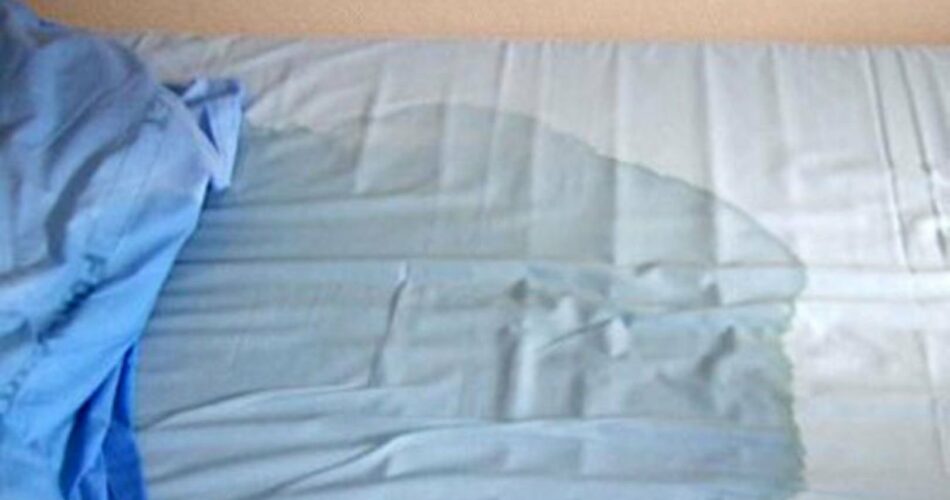What happens to your brain and bladder?
As you drink water throughout the day, your body excretes any surplus fluid. When it’s time to use the restroom, your bladder will finally let you know.
But how does your body know while you’re asleep not to urinate?
While you sleep, your body continues to go through ongoing functions, including breathing, digestion, and, yes, urinating. This proves that your body isn’t completely offline just because you’re dozing off. Together, your bladder and brain decide what to do with the large glass of water you drank just before bed.
Many individuals consider going to the bathroom every day to be ordinary, so you might not think much about it. But one crucial aspect of a pediatric urologist’s job is to comprehend how the brain and bladder interact—and occasionally miscommunicate.
Bladder and brain
The bladder’s two primary functions, according to this article, are to safely hold pee and to expel it. Despite their apparent simplicity, these two actions require the brain to coordinate a great deal of intricate muscle and nerve activity.
The bladder has reflexes in babies and young children, which means that it understands when to contract its muscles to release pee on its own. Baby wears diapers since they can’t consciously regulate this. But, when children mature, their bladder muscles and nerves likewise do so, giving them more bladder control.
Children learn how to use the toilet willingly during toilet training, which typically occurs by the age of 3 or 4. This implies that they have the ability to feel when their bladder is full and that their brain can recognize and process that feeling. The bladder can then be instructed by the brain to “hold it” until the person has reached the bathroom and it is okay to urinate.
Most children initially discover how to use the bathroom during the day. Due to the fact that the brain doesn’t process signals the same way while sleeping as it does when it is awake, using the restroom at night may be more challenging.
The body detects loud noises and bright lights while awake and responds accordingly. The brain is in sleep mode while you are sleeping; therefore, your body might not be able to hear the sounds or see the light. Consider a thunderstorm that occurred throughout the night that you missed until you overheard conversations about it the next day. Your brain was concerned with falling asleep, so it didn’t process the loud noises.
Bladder signals can result in the same effect. Even when you’re sleeping, the bladder continues to fill with urine and alerts the brain when it is full. Your brain will instruct your bladder to keep it until the morning so you can get enough sleep.
Your brain may occasionally instruct your body to wake up if you genuinely need to relieve yourself of a full bladder. Even though it’s common to wake up occasionally to use the restroom, especially if you drink a lot of hot chocolate right before bed, most older children can typically sleep through the night without having to get up.
Your bladder gradually fills up during the night and persists until morning, when you stumble into the bathroom to empty it, when the brain and bladder are functioning properly.
Nighttime mishaps
The communication between the brain and the bladder, however, can malfunction in a variety of ways. One reason is that the brain might not get the bladder’s cue that it’s time to urinate. The bladder may not be able to be told to hold on even if the brain receives the information. Or, if the bladder cannot wait, the brain might not send the wake-up signal to the body. If the signals and messages aren’t conveyed or are misunderstood, the bladder will enter reflex mode and squeeze even when you’re soundly sleeping in bed, emptying itself of urine.
More often than you would imagine, people experience nocturnal enuresis (bedtime wetting). 15% of children between the ages of 5 and 7 occasionally wet the bed. It affects some teenagers as well. Boys are more likely to experience it, and it frequently runs in the family, so parents or other relatives may have also experienced overnight mishaps.
There are several causes of nighttime wetting. Kids’ developing brains make it more difficult for the brain and bladder to communicate at night.
It’s more common for the bladder to fill up when you’re sleeping because certain bodies produce more urine at night. Some people have smaller, more quickly-filling bladders. It may be more difficult to wake up in the middle of the night if you have trouble falling asleep or have a deep slumber.
As their bodies and brains continue to develop, the majority of children who wet the bed at night outgrow it. By that time, their bodies are capable of waking them up at night to use the restroom when necessary or allowing them to sleep through the night without the need to urinate.
Certain strategies, such as consuming fewer fluids in the evening or visiting the restroom just before bed, can help if you frequently wet the bed. These measures reduce the likelihood that the bladder will be overfilled as you sleep. The body can be taught to awaken when the bladder needs to be emptied with the aid of bedwetting alarms. You should speak to a doctor if there are worries about overnight accidents or if older kids start having accidents.
